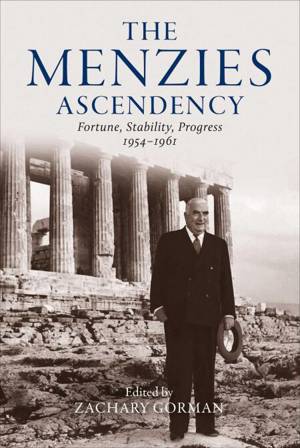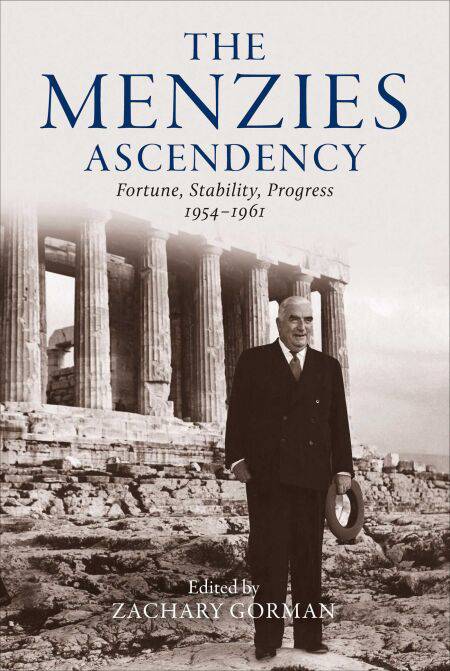
- Afhalen na 1 uur in een winkel met voorraad
- Gratis thuislevering in België vanaf € 30
- Ruim aanbod met 7 miljoen producten
- Afhalen na 1 uur in een winkel met voorraad
- Gratis thuislevering in België vanaf € 30
- Ruim aanbod met 7 miljoen producten
€ 19,00
+ 19 punten
Omschrijving
Was Menzies's unprecedented electoral success merely a matter of luck, or did he make fortune bend to his will? On 30 November 1954, Robert Menzies became Australia's longest serving prime minister. Between the closely fought 1954 and 1961 elections, the Coalition enjoyed a political dominance that allowed it to reshape the nation. The period saw the creation of the Reserve Bank of Australia, the signing of the landmark Commerce Agreement with Japan, vast investment in Australia's universities, the development of Canberra, the opening of Australia's first nuclear reactor, forgotten but transformative healthcare reforms, the abolition of the dictation test, forward progress on Indigenous policy, the signing of an enduring Antarctic Treaty, and more. Yet to critics this was a time when the opportunity for reform was wasted. Has Menzies's deliberate emphasis on continuity over change obscured his achievements? Is consolidated progress preferable to policy revolution? And what does the Australian public want from its leaders? All these issues are explored in the third of a four-volume history of Menzies and his world, based on conferences convened by the Robert Menzies Institute at the University of Melbourne. Contributors include Robert Bowker, Andrew Bragg, Paul Brown, Elizabeth Buchanan, Selwyn Cornish, Damien Freeman, David Furse-Roberts, Anne Henderson, Paul Kelly, Sean Jacobs, David Lee, Ted Ling, Lyndon Megarrity, Greg Melleuish, Andrew Norton, Michael de Percy, Paul Strangio and Stephen Wilks.
Specificaties
Betrokkenen
- Auteur(s):
- Uitgeverij:
Inhoud
- Aantal bladzijden:
- 288
- Taal:
- Engels
Eigenschappen
- Productcode (EAN):
- 9780522881073
- Verschijningsdatum:
- 2/12/2024
- Uitvoering:
- E-book
- Beveiligd met:
- Adobe DRM
- Formaat:
- ePub

Alleen bij Standaard Boekhandel
+ 19 punten op je klantenkaart van Standaard Boekhandel
Beoordelingen
We publiceren alleen reviews die voldoen aan de voorwaarden voor reviews. Bekijk onze voorwaarden voor reviews.










